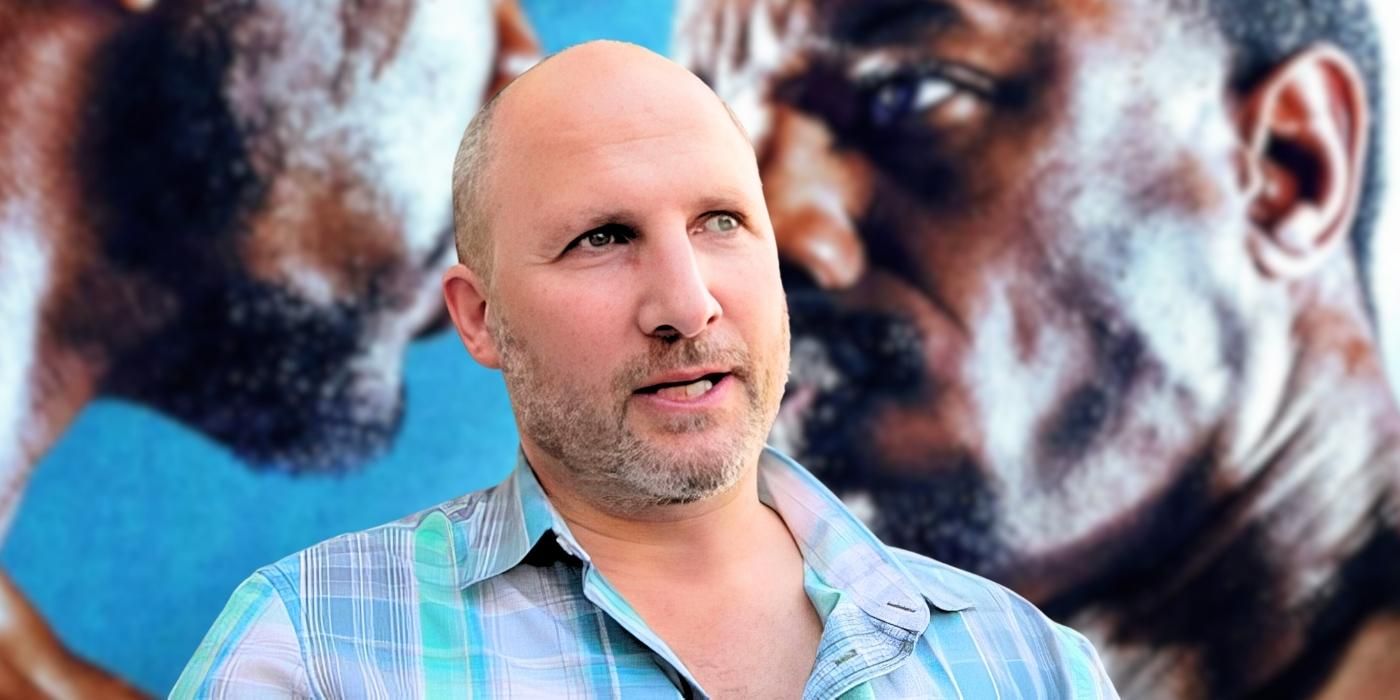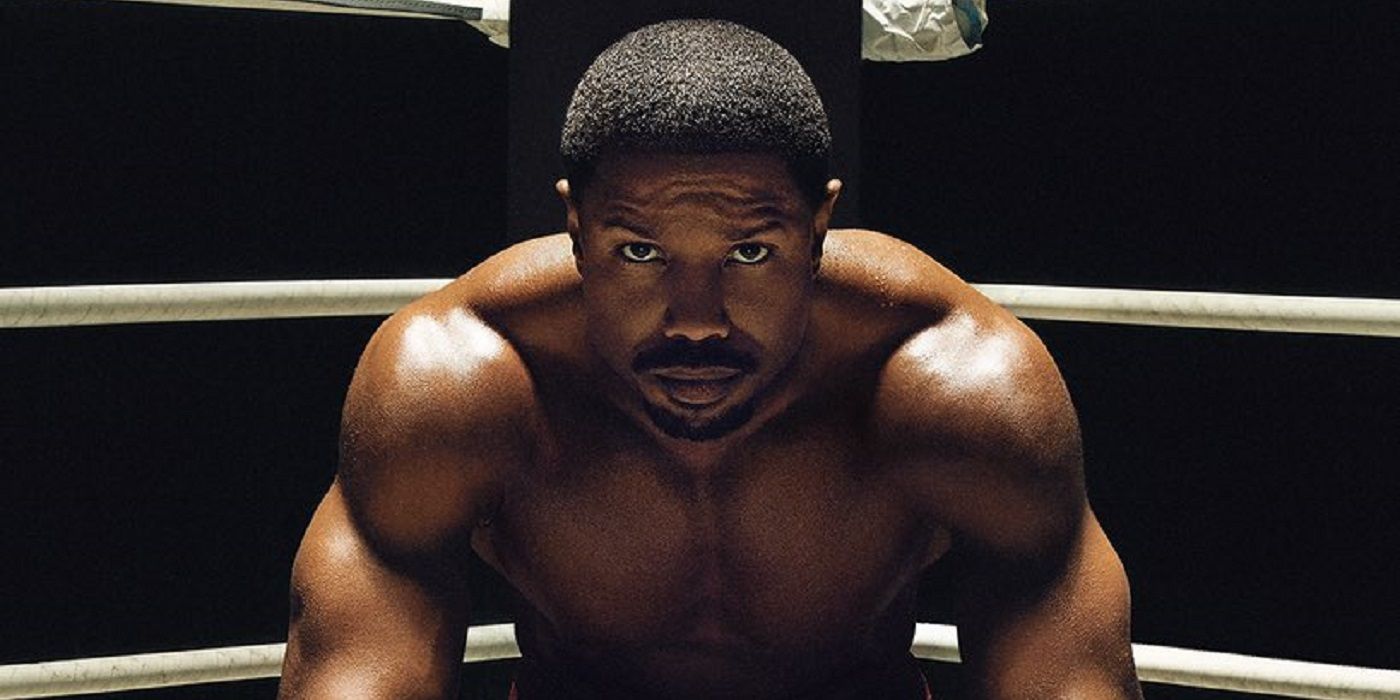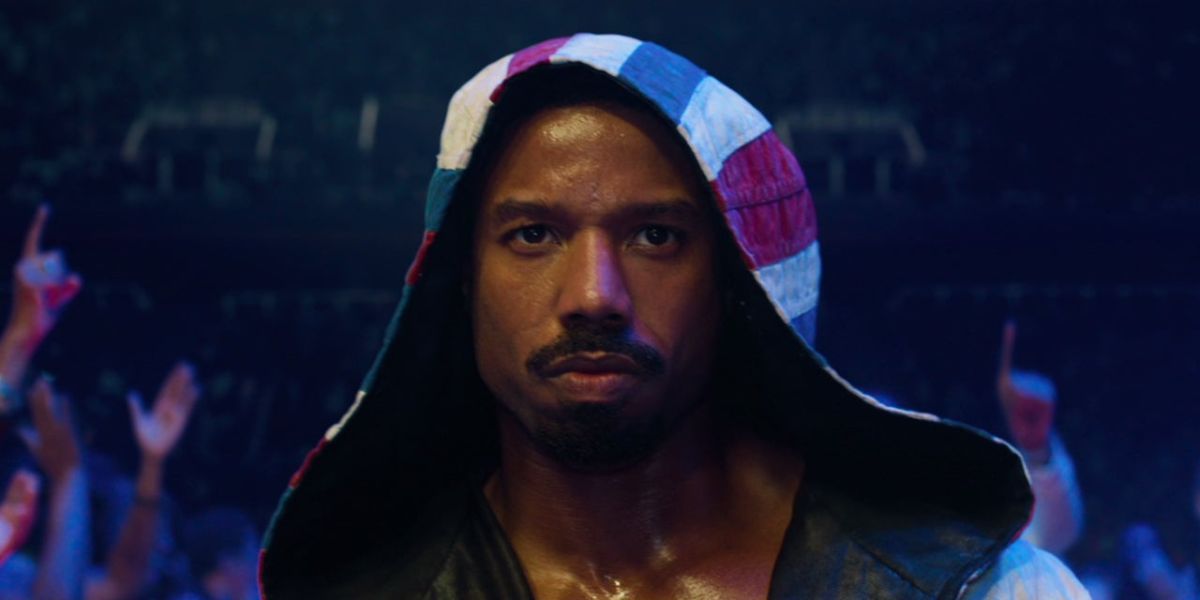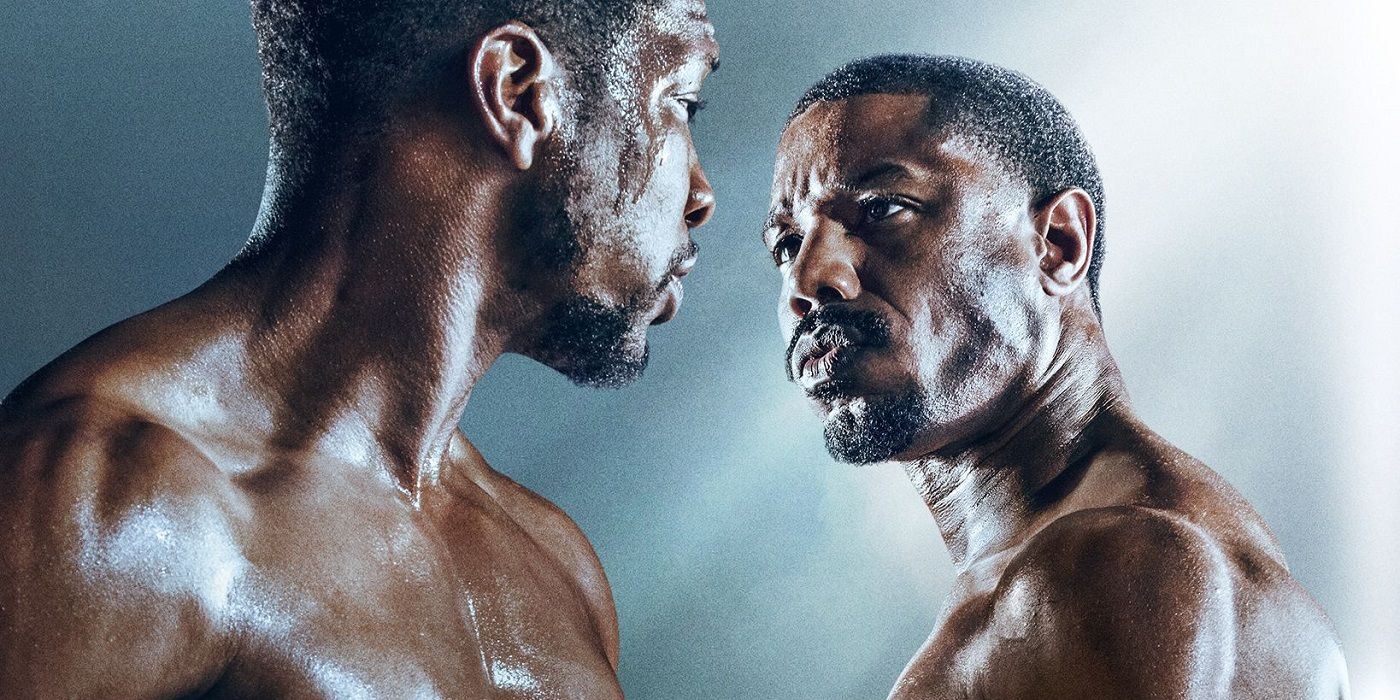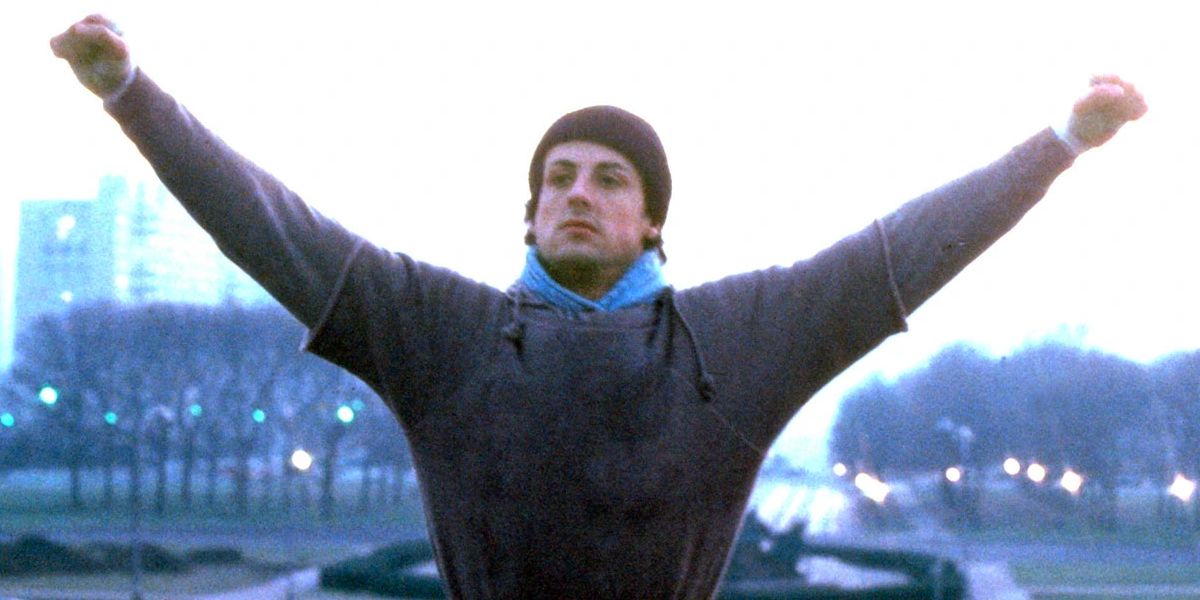In the latest installment of the Rocky series, Creed III star Michael B. Jordan makes his directorial debut with the next chapter of Adonis Creed. To continue this legacy, Jordan enlisted cinematographer, Kramer Morgenthau, the man behind the lens of Creed II and Fahrenheit 451, to team up once again and capture an all-new feel to the franchise that has spanned half a century. In an interview with Collider's Nate Richard, the DP speaks on his working partnership with Jordan, saying the experience on Creed III was “one of the great director/DP relationships of [his] career."
During their conversation, which you can read below, Morgenthau tells us that returning to the threequel allowed him the opportunity to learn how to tweak things in a “similar space,” and offered a challenge to do even better than on the previous film. He also discusses the ways Jordan took inspiration from anime, and how that medium shaped such pivotal moments as the final fight scene between Adonis and Jonathan Majors’ Damian Anderson, how they approached the iconic montage scene, and what he’d love to explore if he joins Creed 4.
COLLIDER: So first off, I need to get it out of the way, I'm a massive Rocky fan. I have the poster for the original just right beside me, so just congrats on this movie. For me, seeing it on the big screen, the fanboy in me was like– it was my Avengers, I'll just say. I wanted to ask about collaborating with Michael B. Jordan because you worked with him before on Fahrenheit 451, and then obviously worked with him on Creed II, but what was it like now that he's directing instead of just acting?
KRAMER MORGENTHAU: I knew MBJ, this was, I guess, my third movie with him, and his first movie as a director, and it was a natural progression for him, I think. He was so dialed in with this character, with this story, and he was so dialed into filmmaking because I think he's in the closet and studying to be a director his whole life, you know. He's been on set since he was 16 years old.
The very first time we worked together on Fahrenheit, he was very interested in what I was doing with the camera, and so we immediately had a bond over the camera and his interest in it. And that's kind of how we became friends and have made a connection. The friendship turned into a director/DP relationship kind of very smoothly, and he came in swinging with really strong ideas that are in the final movie. So, he prepped for a really long time to make the movie. For, I think, almost a year he was getting it off the ground before I even got involved, and so, you know, it was one of the great director/DP relationships of my career.
That’s awesome. I know Michael B. Jordan has gone on record to say that there are a lot of anime influences in this movie. I was wondering, with some of the shots did he give you a list of anime to watch to show you how he wanted some of the shots framed?
MORGENTHAU: Yeah definitely, he did. You know, we watched some anime together. There's [Dragon Ball Z] and [Naruto], and there's a very famous shot, now in this movie, that comes from other anime where they're both, you know, punching each other at the same time at the end of round 11, which was a very experimental round in the final fight between Jonathan Majors and Michael B. Jordan. It was kind of an all-out battle between childhood friends, and the whole round was heavily influenced by anime. It's the sound, the natural sound drops out, and kind of just these voices you're hearing, and sheets of sound, and ultra slow motion. We go into extreme wide-angle lenses, very much influenced by the anime. It's one of my favorite sequences in the whole movie, and it's something that he said he wanted to do very early on in prep, and we call that sequence The Void. It's in the final fight, the second to last round, where they just, you know, the jail bars come in and that kind of thing.
So, that's an influence. [There are] also many parts of the boxing that are kind of told from the boxer's point of view and the boxer pre-visualizes what he's gonna do and sort of studies the body language of the other boxer, and then finds a way to thread the needle and get the punch through the break in the block, and that's all out of anime. So, we used motion control cameras and high-speed cameras all to kind of emulate that anime vibe.
I re-watched the first two Creed movies right before seeing this one, and I know you worked on Creed II, but you could see a distinction between the fights in this movie and the fights in Creed II. So I was wondering, what were the challenges here that weren't there while working on 2?
MORGENTHAU: You know, a part of the challenge of doing this movie compared to Creed II was, it's the first time I've ever done a movie where I'm shooting this– basically, I have an opportunity to shoot the same franchise twice. It's really, really rare in anybody's career to be able to do Creed II, and, you know, “What did I learn from Creed II? And how do I bring that to Creed III? And how do I do it better?”
Creed II was a deep learning experience, and a deep study in boxing photography and in storytelling that I then took and [said], “How do I do it better this time?” I think that’s kind of always a challenge on a sequel is, what are you going to do differently? How do you say something different with a similar space? We push the lighting into much more expressive arenas, literally. And it's very different doing outdoor boxing at Dodger Stadium, and that was something Michael wanted very early on to, you know, delineate the look and do it outdoors.
And also, this story takes place in Los Angeles and Adonis Creed is very much a different person. He's the retired heavyweight champion of the world, he's a huge celebrity, is a huge part of pop culture at this point, and very much who MBJ is as a person. He's very much in the limelight these days. So it's kind of very much drawn from his own life.
I also noticed with how you shoot LA, it's almost like it's a character in the movie itself, just like how Philadelphia is a character, I would say, in the first Creed movies and all throughout the Rocky movies. Was that a deliberate thing going into the movie?
MORGENTHAU: Yeah, exactly. Exactly. You know, Philadelphia is a huge part of Rocky one and the other Rocky movies, including Creed I and II. It's very different that LA is one of the stars of this movie, and MBJ wanted to kind of show A Tale of Two Cities where these two different opponents grow up in– you know, they start out the same in Crenshaw, living in South LA, and one makes it out and one gets stuck, never gets to move on with his life. We call the final fight The Battle of LA. It’s between these two arch-enemies and also, you know, very close friends. So, this film is very much a love story to Los Angeles, and it's something that makes it different than all the other Rocky movies.
Towards the end of the first act, Adonis has been retired for a while already, and later on in the movie he trains and is then in peak athletic shape again. Did you have to do any camera tricks to make him feel smaller than Damian or anything like that?
MOREGENTHAU: Yeah, we shot things out of order, so we had to kind of play a little bit. We shot all the fights in the beginning, as I think it's done on all Rocky movies — and this is the ninth Rocky movie, by the way, or ninth movie in that franchise, a 50-year-old franchise, which is unbelievable. But, we definitely photographed him in a different way to make him appear less ripped than he does when he comes back from retirement. Some of that is as simple as, you know, we didn't shoot him with his shirt off, or whatever. But he definitely trained massively for over a year to get ready for this thing, and as did Jonathan, and it was just a tremendous, tremendous amount of boxing training, and physical training, and physical stamina that went into getting ready for this movie.
So I know you said that the fight scenes were all filmed first, and I know no film in this franchise is complete without the training montage. Was that filmed around the same time as the fight scene, or was that filmed more toward the end?
MORGENTHAU: That was filmed more towards the end. We also did some of it in reshoots and kept figuring out ways to make it better because the montage in any Rocky movie is kind of the jewel on the crown of the whole movie. And how to execute that? It's a film within the film. It's a mini film that's told with no words, and you see all this rivalry, and how do you better the other person? They kind of tell it in the mirror of the two guys, the two guys are mirroring each other, each trying to better themselves, and then it kind of explodes in the end with MBJ at the top of the Hollywood sign, which is sort of like our version of the steps in Philadelphia. So a lot of that was done towards the end when we actually went to real LA to shoot LA for LA, because we shot most of the movie in Atlanta for LA for budgetary reasons.
So I know there's already been a lot of talk about Creed 4. Is there anything that you would want to bring to the table with future installments in the franchise if you get the opportunity to come back? Is there anything you want to experiment with?
MORGENTHAU: Wow, I hadn't thought about that. Yeah, people have mentioned Creed 4, and I think it would be amazing to be a part of it. I have no idea what my involvement is, but I would wanna lean in deeper into the anime language. I think there's a lot more to be explored there. And I think that finding a different way to shoot the fights if there are fights in it. I don't know what Creed 4 will bring us.
I'd love to see Amara (Mila Davis-Kent) have a bigger role. She's an amazing character, and I think there's more, there's a lot of story there, and I think you're gonna see a lot more Creed in the future. So, I can't tell you anything about it because I don't know much about what the plan is there. But I think shooting it, reinventing it in some ways, if I was involved in it, would be absolutely the goal, not just to do another version of the same thing.
Your bias aside with these last two Creed movies, everybody has a favorite Rocky movie. I know most would say the first one, but what say you? What's your favorite Rocky?
MORGENTHAU: It's absolutely Rocky one. I think that that movie is one of the great films of American cinema of the late ‘70s, very much a timestamp of that era, and at the same time, a timeless movie. I mean, the structure is perfect. The way it leaned into telling the story of an Italian underclass in Philadelphia, the rags-to-riches story of it all. The epic sort of boxing for your life kind of story is, you know– it's really hard to top that movie. And I think that was always our gold standard as filmmakers, and I think is one of the gold standards of all films, and it led to a nine movie franchise. I mean, there's no other franchise in American cinema that has lasted for 50 years, except for James Bond. So that says a lot right there. It's a great film, and it's right up there equally to Raging Bull as another one of the great boxing movies.
Creed III is in theaters now. For more on the film, you can check out our interview with Jordan below.

